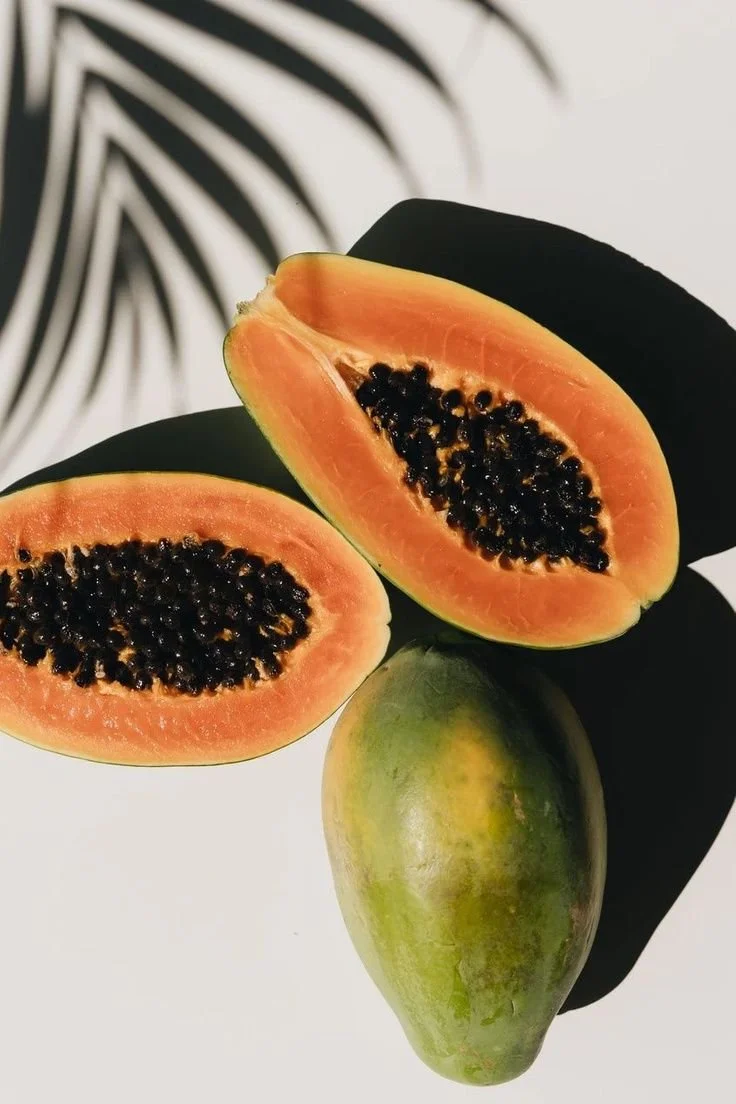Gut Health and Mood: Why Healing Your Digestion Might Heal Your Life
You know that sinking feeling when you're running late for an important meeting—and suddenly your stomach is in knots? Or how about those times when stress hits and you find yourself either completely losing your appetite or desperately craving something sweet?
If you've ever wondered why your emotions seem so intimately connected to what's happening in your belly, you're not imagining things. There's genuine science behind these experiences, and understanding this connection might just be the key to feeling more balanced, energised, and emotionally resilient.
Your Second Brain: The Gut-Mind Connection That Changes Everything
Deep within your digestive system lies what researchers at Monash University call your "second brain" - a complex network that's constantly chatting with the brain in your head. This isn't just poetic language; it's hard science.
The gut-brain axis is a sophisticated two-way communication highway that operates through multiple channels - your vagus nerve, hormones, and the fascinating chemical messages produced by the trillions of microbes living in your digestive tract. When Australian researchers at the University of Queensland studied this connection, they found that inflammation in the gut can directly trigger mood changes, anxiety, and even depressive symptoms - particularly in women.
What makes this especially relevant for Australian women is research from the Garvan Institute showing that hormonal fluctuations during menstrual cycles, pregnancy, and menopause can significantly impact gut health, creating a cascade effect on mood and wellbeing.
Meet Your Microscopic Mood Regulators
Here's something that might surprise you: approximately 95% of your serotonin - that crucial feel-good neurotransmitter-– is actually produced in your gut, not your brain. This discovery, supported by extensive research from Deakin University's Food and Mood Centre, fundamentally changed how we understand the relationship between digestion and mental health.
Your gut microbiome is essentially a bustling city of bacteria, fungi, and other microorganisms. When this community is thriving and diverse, it supports the production of mood-stabilising chemicals like serotonin, dopamine, and GABA. Think of these beneficial bacteria as your personal pharmaceutical factory, working around the clock to keep your mood steady and your mind clear.
Research published in the Australian and New Zealand Journal of Psychiatry found that women with more diverse gut microbiomes reported significantly better mood stability and lower rates of anxiety. The study, which followed 500 Australian women over 18 months, showed that those with healthier gut bacteria were 40% less likely to experience mood-related symptoms during hormonal transitions.
When Your Inner Ecosystem Gets Out of Balance
Life in modern world with our busy schedules, processed foods, and chronic stress - can throw this delicate ecosystem off balance. Researchers at RMIT University have identified several common triggers that particularly affect Australian women:
Stress and Its Domino Effect: When you're chronically stressed (and let's face it, who isn't these days?), your body diverts resources away from digestion. This slows down your gut function and weakens the protective lining of your intestinal wall. A 2023 study from the University of Sydney found that Australian women experiencing work-related stress showed measurable changes in their gut bacteria within just two weeks.
The Antibiotic Impact: While antibiotics are sometimes necessary, they can temporarily wipe out beneficial bacteria along with harmful ones. Research from the Walter and Eliza Hall Institute shows that it can take up to six months for your microbiome to fully recover after a course of antibiotics - and during this time, mood fluctuations are common.
Ultra-processed Food Culture: The convenience foods that make our busy lives manageable can feed harmful bacteria while starving the beneficial ones. Australian dietary surveys show that ultra-processed foods make up nearly 40% of the average woman's daily energy intake - a figure that correlates strongly with reported mood and digestive issues.
The Warning Signs Your Gut Sends to Your Brain
Your gut has its own language, and learning to interpret it can be transformative. Beyond obvious digestive symptoms like bloating or irregular bowel movements, gut imbalance often shows up as:
Persistent low mood or unusual irritability - especially if it seems to come out of nowhere. Research from Griffith University suggests that gut inflammation can trigger the release of inflammatory chemicals that directly affect brain chemistry.
That afternoon brain fog that makes you feel like you're thinking through cotton wool. Studies show that an imbalanced gut microbiome can impair cognitive function, affecting everything from memory to decision-making.
Sleep disruptions that leave you wired but tired. Your gut bacteria help regulate your circadian rhythm, and when they're out of balance, your sleep-wake cycle suffers too.
Nourishing Your Way to Better Mood: The Australian Approach
The good news is that your gut microbiome is remarkably responsive to positive changes. You don't need a complete dietary overhaul - small, consistent shifts can create meaningful improvements in how you feel.
Embrace Fibre Diversity: Australian dietary guidelines recommend 25-30 grams of fibre daily, but it's not just about quantity - variety matters enormously. Researchers at Deakin University found that women who ate 30 different plant foods per week had significantly more diverse gut bacteria and reported better mood stability than those eating fewer varieties.
Try adding Australian natives like wattleseed to your morning smoothie, or throw some native pepperberry into your stir-fry. Local produce like sweet potato, beetroot, and bush tomatoes provide unique prebiotic fibres that feed beneficial bacteria.
The Fermented Food Revolution: Fermented foods are having a moment in Australian kitchens, and for good reason. A 2022 study from the University of Adelaide found that women who included fermented foods in their daily routine showed measurable improvements in mood within just four weeks.
Look for locally-made options like Byron Bay's coconut kefir, or try making your own sauerkraut with local cabbage. Even adding a small serve of kimchi to your lunch can make a difference.
Polyphenol Power: These plant compounds act like food for your beneficial bacteria. Australian research shows that women who regularly consume polyphenol-rich foods - think native Davidson plum, Kakadu plum, or more common options like blueberries and green tea – have more resilient gut microbiomes.
Beyond Food: Lifestyle Habits That Heal
Stress-Busting for Gut Health: Your gut and stress response are intimately connected, so managing stress isn't just good for your mind - it's essential for digestive health too. Research from the University of Technology Sydney suggests that even simple breathing exercises before meals can improve digestion and nutrient absorption.
Try the "5-4-3-2-1" technique before eating: breathe in for 5 counts, hold for 4, exhale for 3, hold for 2, then one final deep breath. This signals to your nervous system that it's safe to digest.
Sleep: Your Gut's Repair Time: Quality sleep is when your gut lining regenerates and beneficial bacteria flourish. Australian sleep researchers have found that women who consistently get 7-9 hours of sleep have more diverse, healthier gut microbiomes.
Create a gut-friendly evening routine: try a warm cup of chamomile tea (grown right here in Tasmania), dim the lights an hour before bed, and keep your bedroom cool - around 18-20°C is ideal.
Movement That Supports Digestion: You don't need intense workouts to support your gut health. In fact, research from Victoria University shows that moderate, consistent movement is more beneficial for gut bacteria diversity than sporadic high-intensity exercise.
A 20-minute walk after dinner, some gentle yoga, or even dancing around your living room can stimulate healthy digestion and support beneficial bacteria growth.
Your Gut-Mood Reset: A Gentle 5-Day Approach
Rather than overwhelming yourself with massive changes, try this evidence-based, gentle approach developed with insights from Australian gut health research:
Day 1: Start with morning mindfulness. Before you even get out of bed, place your hands on your belly and take five deep breaths. This activates your rest-and-digest response and sets a calm tone for your digestive system.
Day 2: Add one fermented food to your day. Whether it's a dollop of Greek yoghurt with breakfast or a small serve of kimchi with lunch, you're introducing beneficial bacteria to your gut ecosystem.
Day 3: Take a post-meal walk. Research from the University of Melbourne shows that even 10 minutes of gentle walking after eating can significantly improve digestion and mood.
Day 4: Practice gut-mood awareness. Before bed, spend a few minutes journaling about how your gut felt throughout the day and any mood patterns you noticed. This helps you identify your personal gut-mood connections.
Day 5: Create a gut-loving meal that brings it all together - perhaps a nourishing bowl with quinoa, roasted vegetables, avocado, and a sprinkle of sauerkraut. This combines fibre, healthy fats, and fermented foods in one satisfying dish.
The Science of Small Changes
What makes this approach so effective is that small, consistent changes create lasting shifts in your microbiome without overwhelming your system. Research from the South Australian Health and Medical Research Institute shows that gradual dietary changes are more likely to result in sustained improvements in both gut health and mood compared to dramatic overhauls.
Your gut bacteria are remarkably adaptable studies show that beneficial changes in your microbiome can begin within just 24-48 hours of improving your diet and lifestyle habits.
Trust Your Gut - It's Smarter Than You Think
Understanding the gut-brain connection isn't just about solving digestive issues - it's about recognising that your gut health affects every aspect of how you feel and function in the world.
When your gut microbiome is thriving, you're more likely to feel emotionally resilient, mentally clear, and physically energised. You'll find it easier to handle stress, maintain stable moods, and feel confident in your body.
The beautiful thing about supporting your gut health is that the benefits extend far beyond digestion. You're nurturing a complex ecosystem that influences your immune system, hormone balance, skin health, and even how well you sleep.
Remember, this isn't about perfection or following rigid rules. It's about creating gentle, sustainable habits that support the incredible intelligence of your body. Your gut wants to be healthy - sometimes it just needs a little support to remember how to thrive.
Start small, be consistent, and trust the process. Your gut and your mood will thank you for it.


